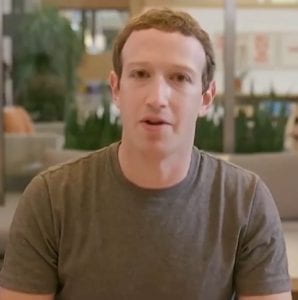Social media is a powerful tool for individuals to exchange ideas and messages quickly. What makes Social Media so powerful? It is powerful because it allows individuals to spread and or exchange information in an instant but with anonymity. Social Media platform systems are built in a way that allows for accounts to be published where an individual or even entity may disguise themselves and post. (Such platforms are Instagram, X, TikTok, etc.) Platforms are aware of the power and ability to make an account and spread information whether it is true or not. This power has spawned a few issues for which the platform must adjust to. However, the liability and need for the platforms to adjust depends.

Here, in the United States, we recognize the need for ethics and the responsibility of upholding a fiduciary duty regardless if an individual is a lawyer or working in another profession that requires such duty. In law, we have the Model Rules of Professional Conduct. We recognize that certain positions in power concerning business transactions can be used in an abusive manner to take advantage of the other party. However, there is a limit to the liability as the United States is a capitalist, free-market economy. Do we want individuals to go ahead and get into business deals without doing their due diligence since the law could help remedy losses due to a business partner not upholding their duties? No, we would not see an end to the amount of cases that could be heard and it would be unfair to the courts, and business partners at some point. Bad business decisions are made all the time just as bad business deals are made. Businesses must adjust and do the work required to ensure they do not make bad choices and find their business suffering from them. Businesses are mature enough to properly face the consequences of a bad decision and work through it to get back into a profitable position.
Well, should these platforms owe a certain duty to the individuals on them? With Section 230 of the 1996 Communications Decency Act, it seems the idea that we have taken as a country is, that it is the user that is liable not the provider of the service for which questionable activity is posted. Therefore liability for activity that can be determined as hateful, inciting violence, or harm will be placed on the account/user who posted the activity, not the individual or company that gives such user a platform (a place for which the user may spread such questionable activity to other users). According to PBS it is a law that dates back to the 1950’s when bookstores were held liable for the content in the books they sold. SCOTUS determined “created a “chilling effect” to hold someone liable for someone else’s content.”

EUROPE
The European Union (EU) has a different feeling on the liability of platforms. The EU, a committee of European nations who come along to meet in the pursuit of peace, believes consumer protection should be the priority when it comes to online “Digital Services”.
The EU established the Digital Services Act, laying out certain requirements for digital service providers, online intermediaries, and platforms, which would ensure “user safety, protect fundamental rights, and create a fair and open online platform environment.” It is fair to determine that Europe sees the internet as a topic too big for one nation to really figure out a way to manage it. By February 2024, the European Union determined the Act must apply to all types of platforms under the EU’s terminology.
The EU chooses to acknowledge that the internet and its growth are unpredictable. Due to its unpredictability, it is best to provide its users with some safety, as it is evident the internet is needed to complete everyday tasks. If the internet is something that individuals need to use to survive in the modern technological world, then it must be regulated. The most effective way to regulate global platforms is to have a group of nations such as the EU come together and decide on a unified form of regulations.
Russia makes its own attempts to regulate platforms in its own country. The way Russia has been handling Google is a prime example. According to Ty Roush of Forbes, “The Russian government is attempting to fine Google about $20 decillion, a figure with 34 zeros that’s exponentially larger than the world’s economy, over a decision by YouTube—owned by Google’s parent Alphabet—to block channels run by Russian state-run media, according to Russian officials.”
In the last few years, Russia has been holding Google, and its Russian Subsidiary accountable for the allegations that Russia has presented. In response, Google has decided to remove itself from Russia over time to the point its presence will eventually be nonexistent in Russia. Google will not and can not pay the fine that Russia is asking.
It seems to regulate a platform like Google, whose presence is all over the world in more than one nation, it will require more than one nation to come and determine a standard for the platforms. The platforms have established that they are here to stay for a while. One singular nation cannot handle a platform of the scale in nature as Google. Google can decide to go ahead and leave a large profitable market like Russia because it is still established in most nations across the globe outweighing the benefits of staying in Russia and fighting their rules to keep its presence.
North America/U.S.A

North America, where large influential nations such as Mexico, Canada, and the United States reside, does not have a unified committee such as the European Union. Therefore, regulation is up to the individual nation to come up with their own set of rules or if they want to come up with any at all. With section 230, the United States has relieved liability for the platforms. However, we are aware that individuals’ mental health worsened as the internet grew. It does not look like the issue of mental health in the nation is getting any better. It will definitely not get better with platforms providing places for individuals or even bots to spread harmful activity.
It is time for nations across the globe to come together and acknowledge the internet, and its platforms are a global matter where users are very susceptible. The only way to protect global citizens from the harm the platforms can provide is to establish a unified mindset on handling the internet. It is best to see just how effective the DSA is for the EU and perhaps, one day, the United Nations may establish a treaty amongst nations where platforms may be regulated with users’ safety as the priority.






